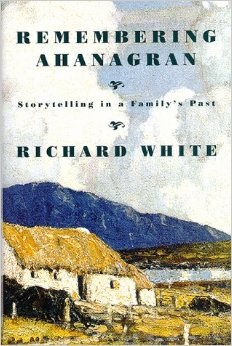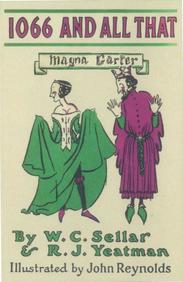
"Lives are not stories. A day, a month, a year, or a lifetime has no plot. Our experiences are only the raw stuff of stories...We turn our lives into stories, and, in doing so, we...[give our] lives a coherence that the day-to-day lives of our actual experience lack."
One one level, White helps us to get a glimpse into the intimate stories of his family and shows us the strangeness of the world they inhabited. We see the impact of British policy in Ireland, we feel the social stigma attached to mixed marriages, we appreciate how people were both driven by the own desires but also controlled by factors outside their control. I was particularly drawn in by the detailed focus on the construction and reconstruction of ordinary lives. White is by no means glorifying the life his mother led, however, he shows it to be of the same interest and importance as so many other "famous lives" which have of course received far more attention. He demonstrates this beautifully when talking about the house in which his mother spent her early years in the USA.
"There are no histories of Chicago in which 6420 South Mozart Street...matters very much...But for Sara, Chicago always existed in relation to South Mozart Street. And all of America existed in relation to Chicago. South Mozart Street, where she started and ended her day, was the center of America."
On a different level, the book is also a history of the United States in the early 20th century. The characters of the story, whilst very ordinary, are also touched by the major events of the time. During Prohibition illegal stills are kept in the basement. When the Great Depression arrives its toll on the immigrant Americans can be seen. The racial tensions in the South also receive mention as do the corrupt legal systems of Chicago which find themselves in thrall to the Irish gangs. Towards the end of the book, themes of anti-Semitism and racism tinge the story, whilst the War throws the lives of the characters into disarray. If nothing else, the book is well worth a read to see how these "great" events impacted on the lives of everyday people. It is a story about what it means to be American and how American identity has been shaped.
Finally, and most importantly, "Remembering Ahanagran" is something of a historiography. The memories of White's mother are the raw materials of the book, however White has taken a very different approach to this. Much of the book sees him discussing and dealing with the gulf which exists between the memories of his mother and the evidence he can find historically. He begins by outlining the tensions between memory, story-telling and history.
"I once though of my mother's stories as history...Then I became an historian, and after many years I have come to realize that only careless historians confuse memory and history. History is the enemy of memory. The two stalk each other across the fields of the past, claiming the same terrain."
In every aspect, White compares his mother's memories and stories with the evidence he can find. In most cases there are huge tensions between the two version of the past and the book deals with how these might be reconciled. This is often a difficult process, and on more than one occasion it is clear that White's mother is not entirely happy with the direction the book is taking, she would rather keep the version of history she has created for herself. However White persists and the most fascinating aspect of the book is how White deals with these tensions and how he attempts to construct a history from the fragments. This is one of the most brilliant and eloquent explanations of the historical method I have read. It is like picking up White's thoughts and notes as much as it is a finished book. He also clearly struggles with his own memories of his mother and father as these are challenged by the evidence.
I think my favourite aspect of the book has been, what White would term, its anti-memoir quality. There is no attempt here to construct simple stories with simple meanings. Every aspect of Sara Walsh's life story is scrutinised. In many cases the result is complex and the result seems strange. But as White notes:
"Any good history begins in strangeness. The past should not be comfortable. The past should not be a familiar echo of the present...The past should be so strange you wonder how you and the people you know and love could come from such as time..."
Ultimately the book feels like a discussion, a conversation about the past and how and why we construct it. It is a brilliant way to get thinking about the historical method and a highly recommended read to really get you thinking about what it means to be an historian and what the role of history should be. It also asks us to consider the meaning of historical significance, taking seemingly innocuous events and showing the enormous shadows they cast over the lives of the people in the book. White also demands that we think about the nature of time itself. He shows how some stories occur in ordinary time, whilst others, such as those of the heroes of The Troubles, take place in a "monumental time", where lives and deaths can span centuries instead of decades. Of course, ultimately the question of historical truth is raised. The conclusion on this is far from clear cut. The themes of the book are universal, they ask us to consider the merits and dangers of memory, and the shortcomings of History as a discipline. This book has not always been a simple read, but it has been absolutely riveting. I am not sure I have done it justice here but I cannot recommend it highly enough. I will finish with one last quote (from a book I could quote every second page of).
"Memory is a living thing vulnerable to a dead past until memory itself dies with its creator... History is a dead thing brought to new life. It is fragments of the past, dead and gone, resurrected by historians...It threatens our versions of ourselves."




 RSS Feed
RSS Feed
